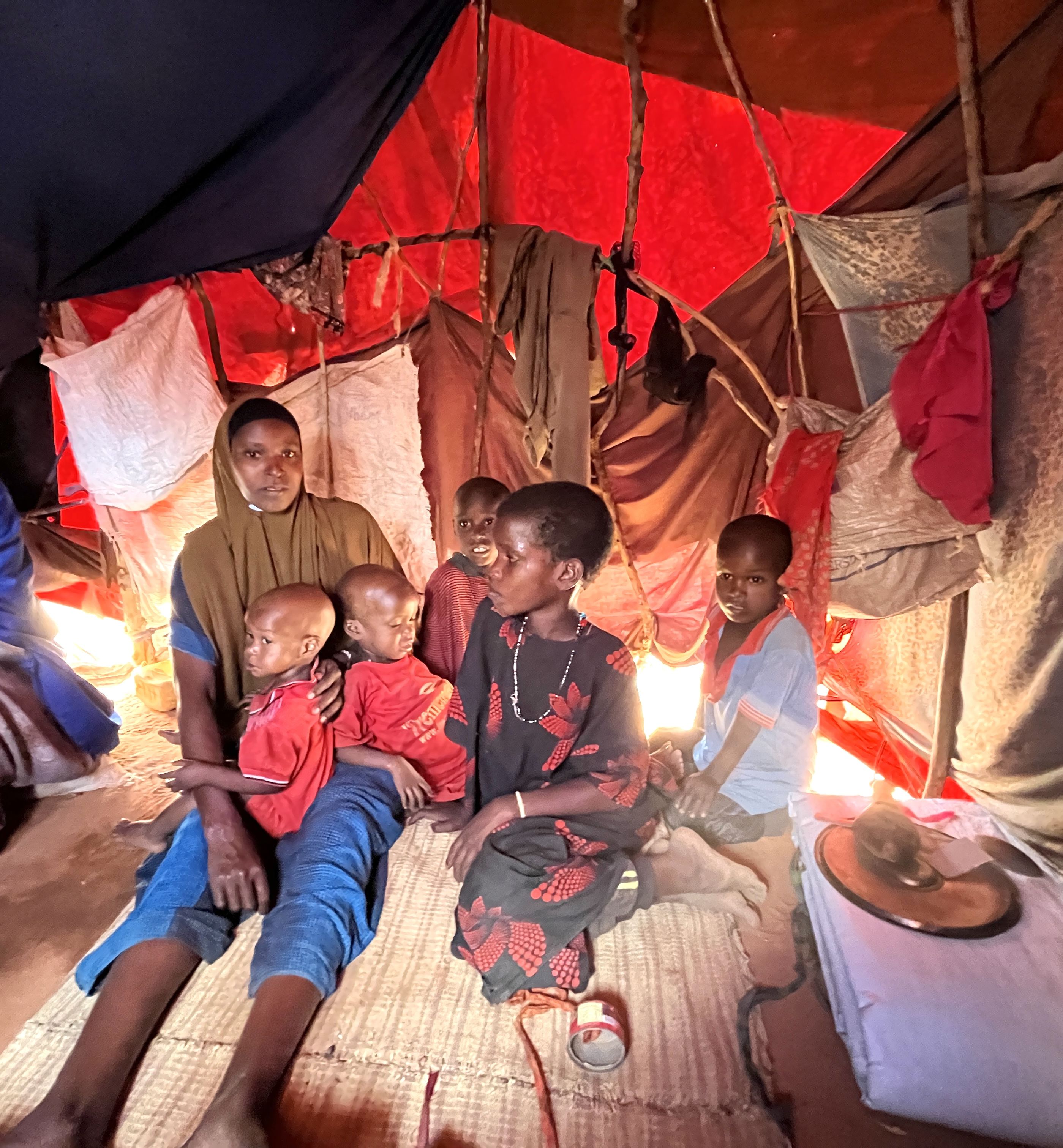Trócaire’S CEO has called on Ireland, the UK and rich nations to scale up funding for the Horn of Africa as the UN warns that famine is ‘at the door’ of Somalia.
Speaking from Gedo region in south central Somalia, Caoimhe de Barra said: “The world needs to act now to avert a major humanitarian catastrophe”.
“What was predicted for months is coming to pass and we are on the verge of a famine being declared,” said Caoimhe. “This crisis has not come without warning from the humanitarian community and is a result of repeated failures to learn from the past. It is a damning indictment of rich countries who have failed to act.”
She added: “It is already too late for the many people who have died from hunger in Somalia and the Horn of Africa in recent months. It is now time for the international community to finally step up and prevent a devastating humanitarian catastrophe and the deaths of hundreds of thousands more people. The fact that people are dying of hunger in 2022 is an unacceptable political failure. In fact, failing to prevent famine in the 21st century is not just neglect. It is a policy choice.”
Today the UN Under-Secretary-General for Humanitarian Affairs and Emergency Relief Coordinator, Martin Griffiths, who is visiting Somalia, said he has been shocked to the core by the level of pain and suffering of so many Somalis. “Famine is at the door, and today we are receiving a final warning.” he said.
Ms de Barra said over the last few days she has witnessed unspeakable suffering and hardship. "It could be argued that famine has already crossed the threshold of the door into Somalia," she said.
Bisharo lives in Boyle camp for displaced people in Luuq, Somalia. She had to leave her home because of drought.
— Caoimhe de Barra (@CdeBarra) September 7, 2022
Her children are receiving care in @trocaire health facilities now. But we are very worried about how to continue this in the coming months as needs increase. pic.twitter.com/wST7Z4YoLr
“I have met mothers whose children are suffering from severe malnutrition, and they don’t know where the next meal is coming from. I have seen seriously ill children in the Trócaire-run Dollow Health Referral Centre who are on the brink of death. The suffering here is immense.
"People are leaving their homes and villages, often walking for days with no food or water, and arriving in new internally displaced people’s camps in their thousands every month. They are in desperate conditions and are facing massive challenges in accessing humanitarian assistance.
“The unjust reality is that women and girls are bearing the brunt of this protracted crisis. In times of food shortages, they reduce personal food consumption to provide for others, carry additional responsibility for sick family members, and undertake arduous journeys at personal risk to find water. In many cases, women and girls are subjected to sexual and gender-based violence or exploitation. A common survival strategy for many is early marriage of girls thus forced to leave school.
“Currently in Somalia more than seven million people, or 45 per cent of the population, are not getting enough food, the highest level of food insecurity ever recorded in the East African country. Aid agencies estimate that 1.5 million children are severely malnourished, and UN forecasting suggests that as many as 350,000 children could already have died this year. Across the wider Horn of Africa, one person is likely dying every 48 seconds from hunger.
“In 2022 alone, the fourth successive season of drought has led to the forced displacement of over 800,000 Somalia people. Over three million livestock are estimated to have died since mid-2021 due to starvation and disease and pastoral households lack access to milk and saleable animals.”
Trócaire has been working to support communities in the Gedo region of South-Central Somalia since 1992 when the country was experiencing famine. Today, the agency:
Provides 220,000 people with access free healthcare via its network of 24 healthcare facilities and emergency health and nutrition services.
Enables 4,000 children to access quality primary education in 15 schools, partnering with local education committees to provide teacher training, schoolbooks, and to promote enrolment and retention of girls
Provides food baskets, water, sanitation, and shelter materials and
Offers medical and psychosocial support to victims of sexual and gender-based violence including intimate partner violence, rape, child marriage and female genital mutilation (FGM).





